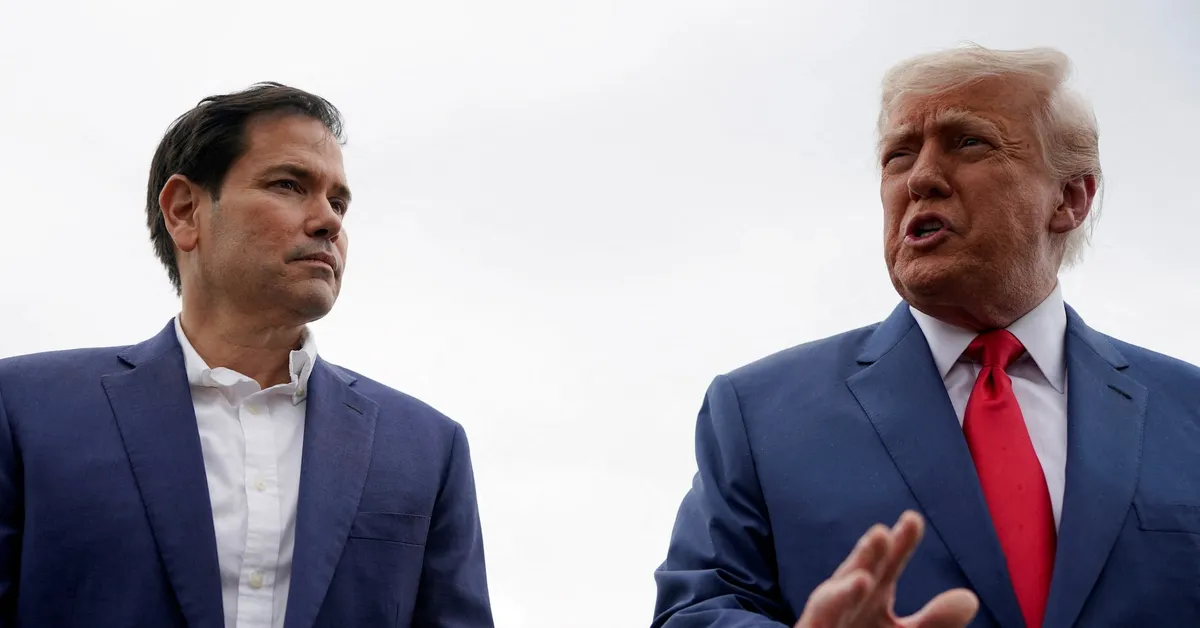
On June 15, reports emerged from Washington indicating that the administration of U.S. President Donald Trump is contemplating a considerable expansion of its travel restrictions. According to an internal cable from the State Department that was reviewed by Reuters, the government is considering banning citizens from an additional 36 countries from entering the United States.
Earlier this month, President Trump signed a proclamation that effectively prohibited the entry of citizens from 12 specific countries. The rationale behind this move was centered on enhancing national security and protecting the United States from potential threats posed by foreign terrorists. This proclamation is part of an overarching immigration crackdown that Trump initiated at the beginning of his second term, which has also included the deportation of hundreds of Venezuelans suspected of gang affiliations to El Salvador.
In the internal diplomatic cable, which was signed by U.S. Secretary of State Marco Rubio, the State Department articulated a dozen concerns regarding the countries considered for potential travel bans. The cable highlighted that these countries might face full or partial suspension of entry if they fail to meet specific benchmarks and requirements within a 60-day timeframe.
Among the key concerns expressed by the State Department was the absence of a competent or cooperative government in some of the identified countries, which hampers their ability to provide reliable identity documents. Additionally, there were questions regarding the security of passports issued by these nations. The cable also noted that some countries were not cooperative in facilitating the removal of their nationals from the United States, particularly those who had been ordered to be deported.
The list of countries that could see a full or partial travel ban if they do not address the outlined concerns within the next 60 days includes:
AngolaAntigua and BarbudaBeninBhutanBurkina FasoCabo VerdeCambodiaCameroonCote D'IvoireDemocratic Republic of CongoDjiboutiDominicaEthiopiaEgyptGabonThe GambiaGhanaKyrgyzstanLiberiaMalawiMauritaniaNigerNigeriaSaint Kitts and NevisSaint LuciaSao Tome and PrincipeSenegalSouth SudanSyriaTanzaniaTongaTuvaluUgandaVanuatuZambiaZimbabweThis potential expansion represents a significant escalation compared to the existing travel ban that took effect earlier this month, which already included countries like Afghanistan, Myanmar, Chad, and others. In addition, the entry of citizens from seven other nations, including Burundi and Cuba, has been partially restricted.
A senior State Department official emphasized that the department is continually reevaluating its policies to ensure the safety of American citizens and that foreign nationals comply with U.S. laws. The official reiterated the commitment of the Department of State to uphold the highest standards of national security and public safety through its visa processes.
This development marks a continuation of the Trump administration's strict stance on immigration and travel, which has seen various iterations over the years, including a notable travel ban on individuals from several Muslim-majority nations during his first term in office. This policy was ultimately upheld by the Supreme Court in 2018.
As the situation evolves, it remains to be seen how these potential travel restrictions will impact international relations and the lives of individuals from the listed countries.